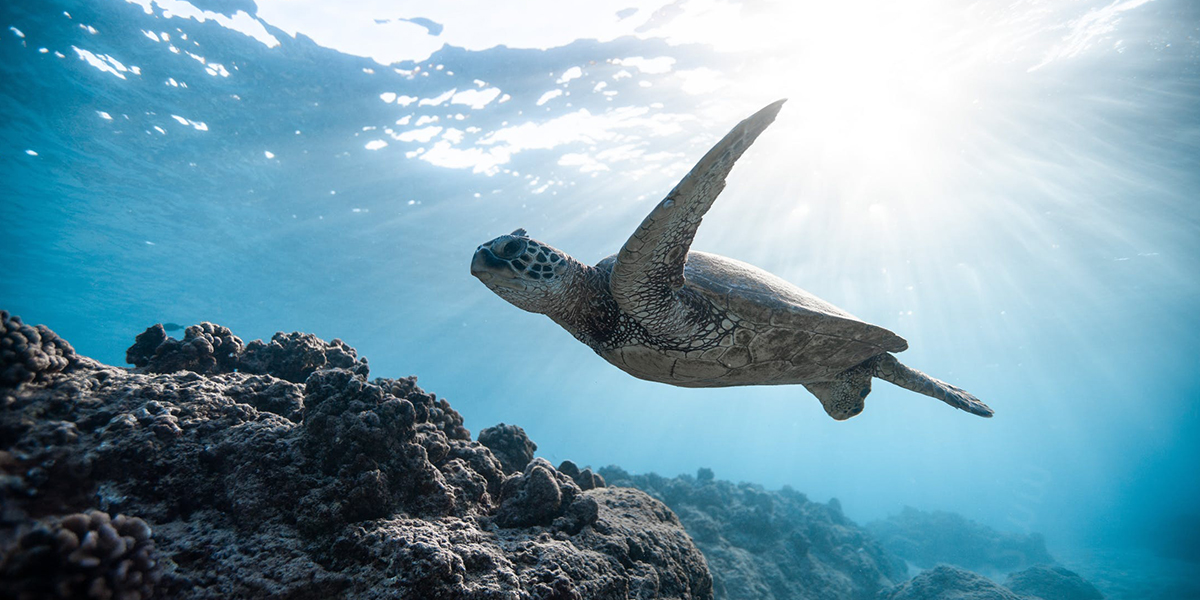
The ocean drives global systems that make the Earth habitable for humankind. Our rainwater, drinking water, weather, climate, coastlines, much of our food, and even the oxygen in the air we breathe, are all ultimately provided and regulated by the sea.
Careful management of this essential global resource is a key feature of a sustainable future. However, at the current time, there is a continuous deterioration of coastal waters owing to pollution, and ocean acidification is having an adversarial effect on the functioning of ecosystems and biodiversity. This is also negatively impacting small scale fisheries.
Saving our ocean must remain a priority. Marine biodiversity is critical to the health of people and our planet. Marine protected areas need to be effectively managed and well-resourced and regulations need to be put in place to reduce overfishing, marine pollution and ocean acidification.
The expansion of protected areas for marine biodiversity and existing policies and treaties that encourage responsible use of ocean resources are still insufficient to combat the adverse effects of overfishing, growing ocean acidification due to climate change and worsening coastal eutrophication. As billions of people depend on oceans for their livelihood and food source and on the transboundary nature of oceans, increased efforts and interventions are needed to conserve and sustainably use ocean resources at all levels.
- Ocean acidification is caused by the uptake of atmospheric CO2 by the ocean, which changes the chemical composition of the seawater. Long-term observations of ocean acidification over the past 30 years have shown an average increase of acidity of 26 per cent since pre-industrial times, and at this rate, an increase of 100 to 150 per cent is predicted by the end of the century, with serious consequences for marine life.
- To achieve sustainable development of fisheries, fish stocks must be maintained at a biologically sustainable level. Analyses reveal that the fraction of world marine fish stocks that are within biologically sustainable levels declined from 90 per cent in 1974 to 66.9 per cent in 2015.
- As of December 2018, over 24 million km2 (17.2 per cent) of waters under national jurisdiction (0–200 nautical miles from a national border) were covered by protected areas, a significant increase from 12 per cent in 2015 and more than double the extent covered in 2010. The global mean percentage of each marine key biodiversity area covered by protected areas increased from 31.2 per cent in 2000 to 44.7 per cent in 2015 and to 45.7 per cent in 2018.
- Illegal, unreported and unregulated fishing remains one of the greatest threats to sustainable fisheries, the livelihoods of those who depend upon them and marine ecosystems. A framework of international instruments has been developed that addresses different aspects of fisheries management. Most countries have taken measures to combat such fishing and have adopted an increasing number of fisheries management instruments in the past decade. For example, the Agreement on Port State Measures to Prevent, Deter and Eliminate Illegal, Unreported and Unregulated Fishing, the first international binding agreement to combat such fishing, entered into force in June 2016. The number of parties to the Agreement has rapidly increased and stood at 58 as of February 2019.
- Small-scale fisheries are present in almost all countries, accounting for more than half of total production on average, in terms of both quantity and value. To promote small-scale fishers’ access to productive resources, services and markets, most countries have developed targeted regulatory and institutional frameworks. However, more than 20 per cent of countries have a low to medium level of implementation of such frameworks, particularly in Oceania and Central and South Asia.
